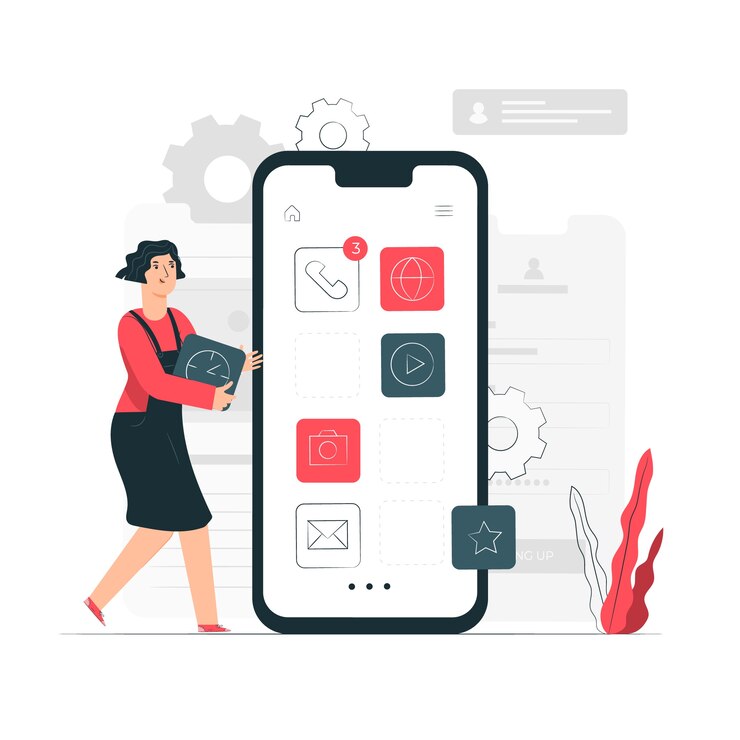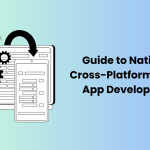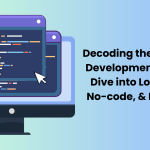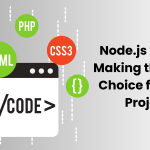iOS vs. Android is a perpetual battle between two tech giants. Both have been competing against each other with their merits and demerits. The fast-growing mobile industry impels developers to launch mobile apps on both platforms for better reach. It’s important to consider trade-offs for both platforms and decide to start off where you feel more empowered.
If you’re thinking on the lines of whether to create apps for both platforms or specialize in only one, we are here to briefly guide you. Let’s get into the intricate details of iOS vs. ‘ platforms.
iOS vs. Android: The Ultimate Comparison
With the proliferation of mobile devices, individuals are likely to access content from their handheld devices. This trend has given rise to the augmentation of new mobile apps. To fill the gap, custom mobile app development is always in an unenviable position whether to launch a mobile app for Android, iOS or both. This choice is especially important for an iOS app development company that wants to succeed in today’s competitive mobile market. Both these platforms offer pros and cons.
User Base & Market Share
As a first step, the size of each platform should be taken into consideration. iOS has become a desirable platform due to its user base, which helps the app creators to catch the desirable audience, or tap into a more lucrative market. However, Android has a bigger user base. So, it is more popular overall. For this instance, it provides access to a greater number of audiences. Moreover, it increases the likelihood of more app downloads.
Pros: User Base & Market Share
iOS
The rich population uses iOS devices. iOS users mostly come from privileged backgrounds. They tend to spend more money on applications and in-app purchases.
Android
Android has a vast and growing user base worldwide. It extends its apps to most of the smartphones. It means it can reach more potential customers.

Development Complexity
It is more difficult to develop for both iOS and Android. They use a complex network of languages and frameworks. iOS apps are designed in Swift or Objective-C. However, the Android platform is designed in Kotlin or Java. Developers should consider both advantages and disadvantages, while determining which platform to use among both iOS and Android. Developing two platforms at once might lengthen the development process and delay the product’s release.
Pros: Development Complexity
Developing for Both
It will attract more people to see your ads, and that will bring more money for you.
Single-Mindedness
Provision of a more coherent development cycle and a fast route to market. There will be less hassle and an efficient utilization of resources.
App Monetization
Android and iOS use different approaches to monetization. iOS customers spend more money on applications and in-app purchases. So, it is a popular choice among app designers. Contrary to iOS, Android has a greater audience and more ways to make money. Such as:
- in-app advertisements
- freemium designs
Before finalizing their decision developers should consider their objectives and the expected amount of income from both the platforms.
Revenue Generation & App Monetization
Consider the income potential and app monetization tactics between iOS and Android. It has been observed that iOS users spend more on applications and in-app purchases, resulting in more revenue consumption per user in comparison to Android users. Despite the fact that iOS has a larger installed base, Android’s huge user base makes it a more profitable market for app developers.
Pros: Revenue Generation & App Monetization
iOS
It can earn more money from each customer since they spend more.
Android
It has a greater reach for advertising and freemium business models because of Android’s massive user base.
Fragmentation & Device Compatibility
Android is open source. Hence, it has a wide range of types of devices. Each device has different specifications, hardware and resolution. Testing an app on many devices may be challenging for developers. The iOS platform, on the other hand, is more manageable as it contains a small number of supported device types that helps in easy optimization and testing.
Fragmentation & Standardization
Another factor that differentiate iOS and Android platforms is fragmentation and standardization. Because of this feature, it can be difficult for developers to program their work more effectively on all devices. However, iOS has a more standardized environment, which makes app creation and testing comparatively easier than on other platforms.
Pros: Fragmentation & Device Compatibility
iOS
Its advantages include a regulated setting that facilitates the testing and optimization of apps.
Android
It has potentially more people to target with increased device support.
Updates & Approval Process
iOS has a rigorous app review process. It assures high-quality standards and security. So, it is reflected in the frequency of updates and approvals. It may cause approval delays to increase. Yet, it also makes the service more trustworthy and secure. However, Android’s relaxed certification procedure enables more frequent upgrades and variants. When deciding on a development strategy, developers should consider how often they want to provide updates and how critical it is to update on schedule.

Pros: Updates & Approval Process
iOS
It boasts superior quality and safety.
Android
The Android platform is known for its rapid development cycles and rapid responses to customer input.
The Race for Popularity
iOS and Android both are the king of the castle in their respective aspects. Both have user bases. Yet, their demographic and geographical breakdowns are somewhat different. iOS has a strong following in certain developed areas. Android has a larger proportion of the worldwide market. More manufacturers support it. As a developer, you can’t make a good decision without first learning about your potential users and what they value.
Environment & Development Tools
Another factor to consider is the development tools and environment of both platforms. It has:
- Comprehensive toolset
- Easy debugging
- Entry to cutting-edge frameworks
As Android Studio has more grounded language support for Java and Kotlin, it is mostly utilized by developers. A few developers might have more experience in one programming language than another. It can influence the stage decision.
App Store Policies & Approval Process
Developers should master the app store’s approval process and policy guideline by focusing the ins and outs of the app store’s. As the app store has difficult approving standards, approval for the app store becomes difficult. However, the rigorous approval procedure justifies the increased quality control and security for iOS users. On the other hand, the Google Play Store takes a more relaxed attitude. It makes publishing an app easier. Also, it increases the risk that you may come across poor quality or harmful software.
Time to Market & Updates
Developers must build, test, and optimize applications for each platform independently. Updating for iOS and Android at the same time might increase the time to market. This lag in delivery time can be disastrous for firms looking to cash in on fleeting trends or events. Further, developers need resources for updates and maintenance on both platforms. It may be a major concern for smaller development teams.
User Experience & Design
The iOS and Android user interfaces and design philosophies are radically different. To provide a consistent experience across platforms, developers must design programs native to each system. Companies aiming for both platforms may have to put more time and effort into design and development.
Conclusion
Developers have tough choices in today’s rapidly expanding mobile market: build for both iOS and Android or choose one. Developers may make well-informed choices that work with their objectives and resources if they consider:
- Market share
- Development complexity
- App monetization
- Fragmentation
- Approval procedures
iOS vs. Android battle does not have a winner! Yes. On one hand, Android leads for a variety of options, cost-effectiveness and greater exposure – the iPhone is the best buy for security, features and shorter development times.
If you want to succeed in the rapidly shifting mobile industry, weigh the pros and cons of becoming an iOS app development company vs going for the larger Android market. By choosing wisely, you may create an app that clicks with your intended users and boosts your business.
Stackup Solutions will help build your first app without worrying about the operating system. If you could trust us with your requirements, budget and timeline, we’d be happy to share the best software product with you!
FAQs
1. When to develop an app for Android first?
Android largely dominates the web traffic from mobile devices. So, if your goal is to cater to a bigger audience, chances are you’ll find your potential users somewhere in Android OS. Furthermore, if you plan to choose push notifications as your initial marketing strategy, Android would be the best bet.
2. When to develop an app for iOS first?
Developing an iOS app first would be costly. So, if your app targets wealthier users, the iOS platform would be a great deal. Apple prefers the latest software updates, thus, if your app development company can cope up with quicker updates, then you must choose iOS as your preferred platform.
3. iOS vs. Android – which is more time-consuming?
Android takes more time to develop in many aspects than iOS. It requires development for different screen sizes and devices, incompatibility with varying hardware and lack of real design and quality guidelines by Google Play Store. Moreover, Android apps are complex to develop due to legacy operating systems to support prior versions.





